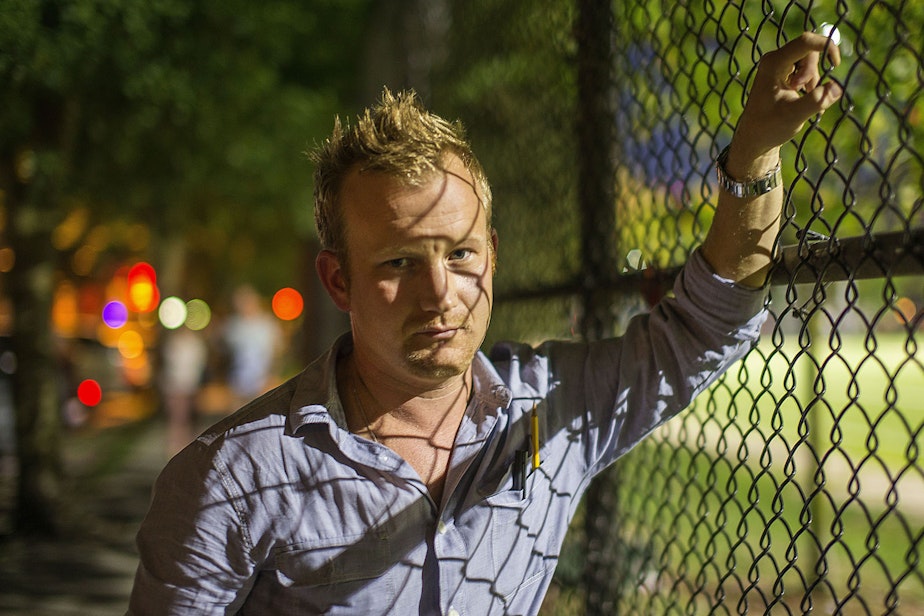13 For '13: Writer Eli Hastings Fuses Art And Healing

Eli Hastings remembers his first writing experience. "My mom had given me a diary," he recalled. Hastings was in elementary school, and he scrawled down a little poem, the kind of insulting ditty that schoolboys hurl at one another on the playground.
For some reason, Hastings' mother decided to read his journal, and Hastings was terrified that this dedicated pacifist would punish him when she saw the entry. Before she could say a word, though, as a preemptive strike, Hastings burst into tears. Laughing at the memory, he said his mom promised never to read his journal again.
"She's read both my books, though." He adds, "that freaks me out a bit."
At 36, Hastings is in the enviable position of being a twice-published author. His most recent book, (officially a memoir, but in Hastings' mind an elegy for a deceased friend) is called "Clearly Now, The Rain." Published in 2013, the book chronicles Hastings' college relationship with a young woman who struggled with drugs and depression and ultimately died.
His first memoir was about Hastings' relationship with his father, a book the young writer penned to help him deal with his dad's death.
For Hastings, writing is as much emotional and psychological catharsis as it is art. He attended Seattle's Garfield High School, which he remembered as a "very liberal place." That's where he started writing, sneaking out of parties to jot down "really bad stuff."
When Hastings entered Pitzer College in southern California, he didn't intend to be a writer. He wanted to right the world's wrongs, a legacy of his mother's strong political convictions. Instead, the young man found himself enthralled by creative writing classes, which ultimately led him to a graduate program in creative writing at the University of North Carolina, Wilmington.
Like many aspiring artists, Hastings planned to write the great American novel, or be the great American journalist. But his experience as a teaching fellow was like an epiphany. He loved helping students write about their problems and their personal triumphs. Ultimately, Hastings' work with students led him to Seattle's Pongo Teen Writing Project.
Pongo started in 1992 as a program that targeted youth in detention, or other seriously troubled situations. Five years ago Hastings signed on with Pongo as a volunteer. He's now one of a small cadre of paid team leaders.
"If I had to describe my particular feeling about what I can do for youth," he said, "it's to be an ally to them."
Hastings is convinced that writing is a pathway to emotional stability. It worked for him and he believes it can help other young people. Oddly enough, his work with young people has brought Hastings full circle back to his college goal of righting the world's wrongs.
Instead of focusing on ending war or solving world hunger, Hastings has found his path helping people cope with and overcome their personal problems. To that end, not only does he continue his work at Pongo, Hastings is also in the final phase of work for his masters degree in family counseling.
This doesn't mean Eli Hastings has abandoned his long deferred dream of writing the great American novel. Despite his publishing track record with memoirs, Hastings considers himself to be a writer of fiction. And given that he's reached a level of contentment in his life with his wife and young son, Hastings acknowledged his next book will have to be vastly different than the first two. "Thank God," he laughed.
This series, "13 for '13" is in partnership with the Seattle Timesand profiles 13 members of the Seattle-area’s diverse cultural community; people who have had an impact and are poised to shape the cultural landscape in the decade to come.

